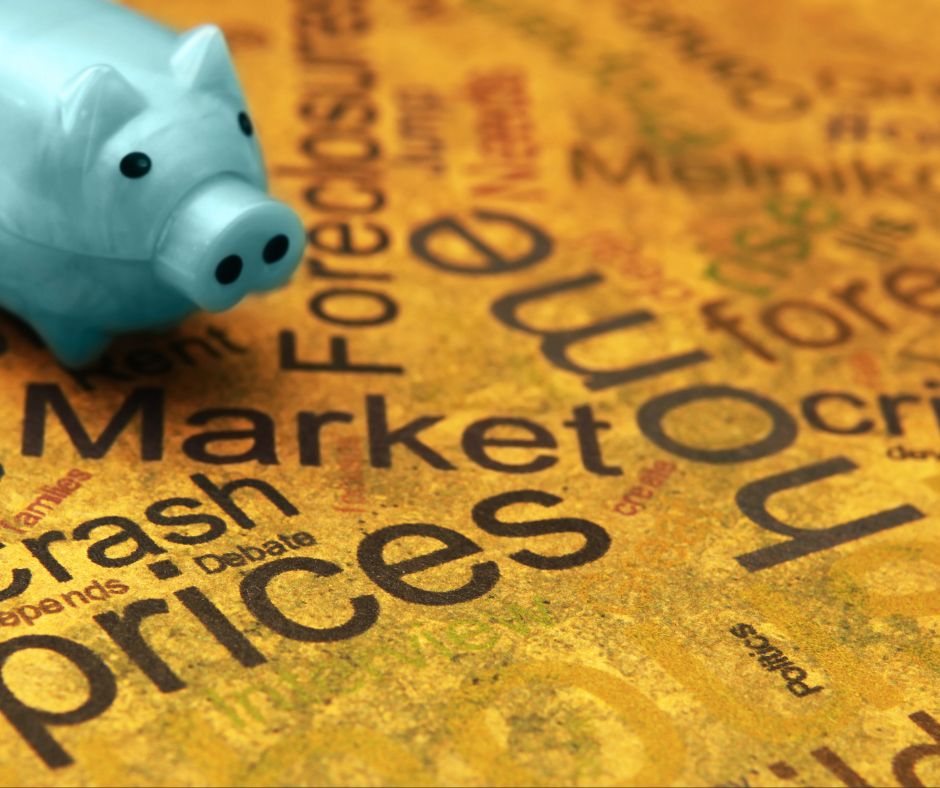Donald Trump has just announced a wave of new tariffs affecting almost every country. In response, many nations have hit back with tariffs of their own.
This global tension has raised serious concerns about a recession in the U.S., with experts now saying there’s a 60% chance it could happen. If it does, the rest of the world might follow.
Markets are already reacting. The S&P 500, which tracks the 500 largest U.S. companies, has dropped 10% since the end of January. Much of this is due to the “Magnificent Seven” – Meta, Alphabet, NVIDIA, Apple, Amazon, Microsoft, and Tesla – which are down 27%.
The Australian share market has also fallen 10% since mid-February, and more declines could be on the way.
So, is this just a market correction, or the start of a full-blown crash?
No one can say for sure. But if we look at the past 100 years of U.S. stock market history, there have been 60 market corrections. Of those, 43 were moderate, with drops between 10-20%. The remaining 17 turned into crashes, with falls over 20%.
So statistically, there’s roughly a 30% chance this correction could become a crash.
What should you do as an investor?
It depends on your stage of life and financial goals.

If you’re retired or nearing retirement, make sure you’ve got four to five years of living expenses in safe, low-risk investments like term deposits, high-interest savings accounts, or bonds. That way, you’re not forced to sell shares at a loss if the market falls further. Keep some money invested in shares, because history shows that markets usually recover within three years.
If retirement is 5–10 years away, stay calm. Don’t try to time the market. Keep investing regularly and think of this downturn as the market being “on sale.” You’re still in a strong position to benefit from the eventual recovery.
If you’re 10–20 years from retirement, this could be a great opportunity. With time on your side, you can afford to take more calculated risks. You don’t need to go all-in, but now is the time to plan ahead so you can benefit from future market gains.
Some strategies we’re helping clients with include using borrowing (leverage) to invest or sticking to a disciplined approach like dollar-cost averaging—investing the same amount regularly no matter what the market is doing.
The most important thing? Take action. Whether that’s adjusting your investments, planning for the years ahead, or simply sticking to your current strategy, doing something beats doing nothing.
We specialise in helping professionals and executives grow and protect their wealth so they can live the life they want—especially during uncertain times like these. If you would like to discuss how you could benefit from independent financial advice, book a chat via the button below or contact us on 02 6269 3339 or at team@constructwealth.com.au.
About the Author
Phil Harvey is an independent financial adviser. In 2017 Phil set up his company Construct Wealth to help clients best manage their finances so they focus on what is important to them. He is a founding member of the Profession of Independent Financial Advisers and a tax financial adviser.
General Advice Warning
This advice contains general information. It may not be suitable to you because it does not consider your personal circumstances. Phil Harvey and Construct Wealth are authorised representatives of Independent Financial Advisers Australia (AFSL 464629)
See related articles
The AI tech boom: Incredible growth….. but what could go wrong?
Ever since OpenAI released ChatGPT in November 2022, the investment landscape has shifted. Artificial Intelligence or AI is now a daily headline, and company valuations have climbed [...]
Pay off the mortgage or invest?
Do I pay off the mortgage quicker - or invest? One of the most common questions we hear is: “Should we throw extra money at the mortgage, [...]
A plan for financial independence
For many professionals in their early 40s, the idea of being financially independent before they are 60 sounds like a dream. School fees, mortgages, and lifestyle costs [...]



